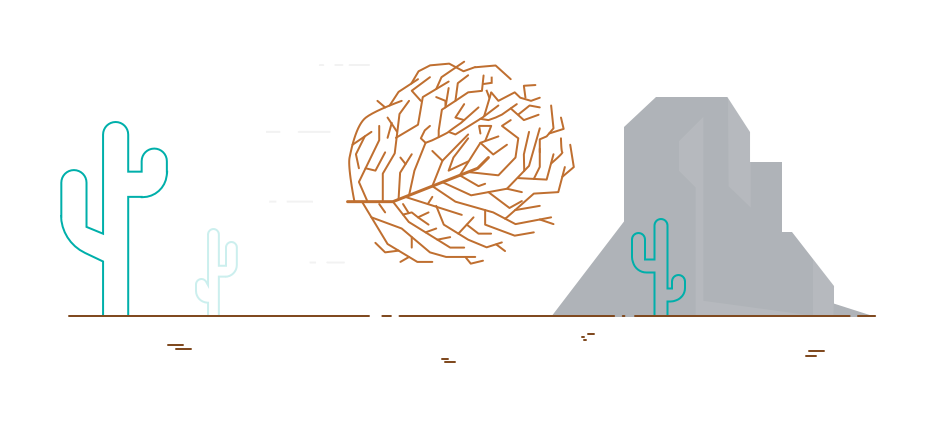Updates on alugha - Cycle February 2023 to April 2023
It used to be sprints, now it's cycles. Not only the name has changed, but also the intervals. alugha is growing up!
The idea is born and the next step is...starting a business. By every “trick” in the book, everyone now wants a detailed business plan, preferably with a 5-year forecast.
Read this article in: Deutsch, English, Español
Estimated reading time:3minutesSo you sit down for days, weeks, and plan everything meticulously and all contingencies are taken into account. Everything about the company is planned: 200 employees, millions in revenue, growth rates, expenses of any kind, investments, assessment phases and much more. Everything looks promising, even interest and repayment are perfectly taken into account. You are ready to go.
Months pass, the product is being developed eagerly and the first customer is just around the corner. But then things turn out differently than expected. On the one hand, the customer misses some features, and on the other hand, there are some aspects that you yourself considered killer features but doesn’t interest the customer at all. Also, he doesn’t think the planned pricing is sustainable, he wants to test the product first, and what about the other customers? Have they given you enough feedback? No such luck since he is the first customer. At THIS point, you quickly realize that all the hard work and the “foundation” of the company, the crazy expensive and very detailed business plan, is on shaky ground. In fact, it basically doesn’t make any sense to rely on it any longer. Everything suddenly changed.
What’s tragic about this “story” is that you always believed that a very good and detailed business plan is the basis of success. And it was always very important to all the “cunning” people, and they never failed to emphasize this, that you adjust the business plan to the ever changing circumstances. The wishful thinking that this plan serves as a blueprint for your course of action suddenly becomes real and no...simply running a business by the numbers, as set out in the plan, is NO guarantee of success.
When we wanted to found the Alugha GmbH, our investor asked us if we had these figures. Back then, I gave him our vision of the product (which was very detailed) and a spreadsheet. The spreadsheet fit on a DIN A5 page. It said how many people we needed for how long in order to reach the first milestones. Also on it were the computers, facilities and operating costs here and there. At the bottom, there was a number and that was ALL we were able to determine as minimum costs with almost absolute certainty, ONLY this number. Revenue? No idea, I could write something down but I currently can’t tell you...that’s what I said back then.
In a startup it’s important to always adapt to the circumstances. There is a vision and a goal that you pursue, but it’s important to question decisions and to react. It’s important to accept that your decisions were wrong and to change direction. On Monday, money is coming on, on Wednesday, it’s almost gone. On Thursday, we get our first customer and we are hopeful but on Friday, an insurmountable problem and missing features seem to ruin us before we, on Monday, come upon the right partner in Silicon Valley and are possibly considered the next unicorn...Crazy idea? Imagination? Paranoia? Wishful thinking? No, that’s the reality, and we are well-advised to incorporate this into our thinking and acting.
But be careful! A business plan and forecasts are important. And the business model canvas developed by Alexander Osterwalder is an efficient way to approach all of this as a startup.
Canvas is a powerful tool for startup CEOs and founders. The next articles will deal with topics such as “Organizing our thoughts and hypotheses” and after that how we can put these hypotheses into practice. We also take a look at how to update the canvas on a regular basis and how to create facts so that it will eventually become a powerful scorecard. With his handbook “Business Model Generation", Osterwalder provided us with a perfect tool.
Stay tuned!
This article is written by our CEO, Bernd Korz. With his experience as an entrepreneur, he shares his vision about the lessons provided by Steve Blank. Join us every week for a new article on Steve Blank’s lectures.
More information on Steve Blank:

It used to be sprints, now it's cycles. Not only the name has changed, but also the intervals. alugha is growing up!
E-mails are so small and inconspicuous. Attached files are often hidden behind a nice paper clip. In reality, they are a real junk data virus. However, there is something we could easily do about it.
Everything takes place in your head. Here is a short report on how I was able to determine my actions with my positive week.
Dieses Video entführt dich in eine Welt der Stille und Reflexion. Leere Tische und stille Räume symbolisieren Momente des Innehaltens, in denen wir uns selbst verlieren und gleichzeitig wiederfinden. Die zurückzeichnenden Bewegungen in der Luft erinnern an vergangene Zeiten und laden dazu ein, über
In diesem Video präsentiere ich euch meinen neuen Song „Bleib bei mir“, der seit gestern auf Apple Music, Spotify und Aluga verfügbar ist. Es geht um das Gefühl, in der Gegenwart zu bleiben, wenn die Liebe da ist, und genau dort zu sein, wo das Herz hingehört. Ich lade euch herzlich ein, den Song an
Heute ist es so weit! Mein Song "In Dieser Zeit" ist raus. Wer gute handgemachte Singer/Songwriter DeutschRock/Pop Indie-Rock/Pop mag, findet sich hier wieder. Dowload gibt es hier: https://push.fm/fl/aor9yuux #deutschrock #liebeskummer #singersongwriter #hundeliebe